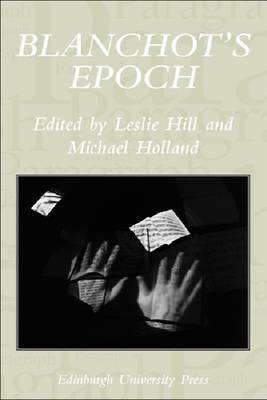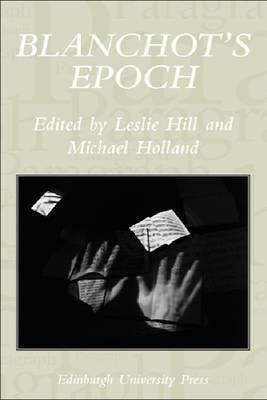
- Retrait gratuit dans votre magasin Club
- 7.000.000 titres dans notre catalogue
- Payer en toute sécurité
- Toujours un magasin près de chez vous
- Retrait gratuit dans votre magasin Club
- 7.000.000 titres dans notre catalogue
- Payer en toute sécurité
- Toujours un magasin près de chez vous
Description
As a writer of fiction, a literary critic, thinker and political commentator, Maurice Blanchot (1907-2003) fulfilled and exhausted some of his century's most pressing challenges. The twentieth century, then, may be thought to have been Blanchot's epoch. As he himself was aware, however, no epoch is properly contemporary with itself. If he speaks of his own age from a place firmly embedded in the struggles and transformations which marked it, therefore, he also writes from a place which exceeds the confines of that epoch, and where history in the received sense gives way to a totally different mode of time. Where then does Blanchot's writing leave the twentieth century, and in what ways does it ask to be read at the beginning of this new century, this new millennium? In the centenary year of his birth, the contributors to this volume consider these questions from a variety of approaches, and address the significance of Blanchot's writing for the times to come.
Spécifications
Parties prenantes
- Editeur:
Contenu
- Nombre de pages :
- 159
- Langue:
- Anglais
- Collection :
Caractéristiques
- EAN:
- 9780748632626
- Date de parution :
- 15-11-07
- Format:
- Livre broché
- Format numérique:
- Trade paperback (VS)
- Dimensions :
- 160 mm x 234 mm
- Poids :
- 299 g






